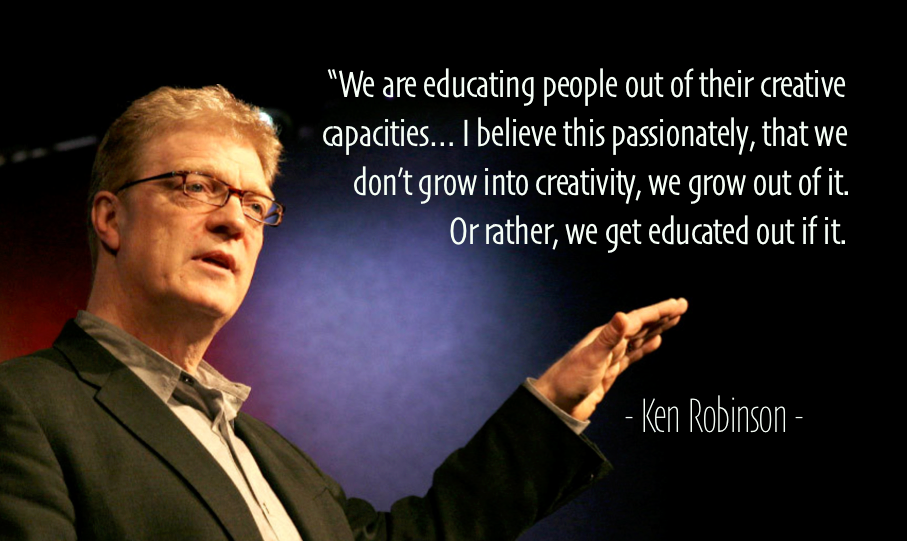Sumary
 'How to escape education's death valley' is the title of a speeech that Ken Robinson did in a TED event. On it, he talks about the problems of the US education system and explains why is there a lot of teenagers that leave school, everything with a lot of ironic humor.
'How to escape education's death valley' is the title of a speeech that Ken Robinson did in a TED event. On it, he talks about the problems of the US education system and explains why is there a lot of teenagers that leave school, everything with a lot of ironic humor.
Ken starts criticizing the american law 'no child left behind', saying that how is it possible to have a law called like this when over 60% of kids are left behind on high school (80% on native areas), and by the way he mentions that this gives economic benefits to the US government.
To explain why the US education system is wrong Ken compares the human natural activity with what we have to do on school, and he talks about three points. On the first placec, humans are naturally diverse, and education is not, on it we focus too much on some subjects, leaving others apart. Secondly he tells that our natural process in learning is: we feel curious about something and then we achive the knowledge; on school, instead of encouraging this curiosity, instead engaging kids, what teachers do is to give information. Robinson says that it's not teachers' fault, because they are not asked to be professional educators, they are asked to know things. On the third place, Ken talks about the important role that creativity should play on every educational system.
After that, he exposes how successful educational systems work nowadays (for example Finland's), focusing on some specific points: more individualized teaching, the high status of teachers on those countries, the high investment that is needed to help those teachers, the 'humanization' of education in general. Another important comment he does is that education is not a political affair, so politicians shouldn't decide what to do in class, this habit takes away the freedom teachers need to work.
Ken says that good educational systems exist already in the USA, but they are all private.
Finally, he acclaims that we need a revolution on education.
Opinion
On this talk Ken Robinson says what I've been thinking since I started school (his talk is more elaborated than my thought, of course, I was saying that just to show my agreement). What he says is so clear, totally logical, until the point that I don't understand why we still have the educational system we have after a talk like this.
I'm going to do a logical process: A country has a failing educational system→ it tryes to improve it → there are examples of good educational systems→ the country just has to imitate the good example → the country has enough sources (we're talking about the USA!) → the country gets a good educational system. So what happens here? If the contry wants, it does. If the contry doesn't want, it does not. Remember that there are good private schools, it's just the public education that fails. I won't say more.
Vocabulary













